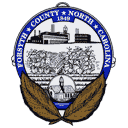Mushrooms – Foraging for Wild Mushrooms Safely
go.ncsu.edu/readext?952138
en Español / em Português
El inglés es el idioma de control de esta página. En la medida en que haya algún conflicto entre la traducción al inglés y la traducción, el inglés prevalece.
Al hacer clic en el enlace de traducción se activa un servicio de traducción gratuito para convertir la página al español. Al igual que con cualquier traducción por Internet, la conversión no es sensible al contexto y puede que no traduzca el texto en su significado original. NC State Extension no garantiza la exactitud del texto traducido. Por favor, tenga en cuenta que algunas aplicaciones y/o servicios pueden no funcionar como se espera cuando se traducen.
Português
Inglês é o idioma de controle desta página. Na medida que haja algum conflito entre o texto original em Inglês e a tradução, o Inglês prevalece.
Ao clicar no link de tradução, um serviço gratuito de tradução será ativado para converter a página para o Português. Como em qualquer tradução pela internet, a conversão não é sensivel ao contexto e pode não ocorrer a tradução para o significado orginal. O serviço de Extensão da Carolina do Norte (NC State Extension) não garante a exatidão do texto traduzido. Por favor, observe que algumas funções ou serviços podem não funcionar como esperado após a tradução.
English
English is the controlling language of this page. To the extent there is any conflict between the English text and the translation, English controls.
Clicking on the translation link activates a free translation service to convert the page to Spanish. As with any Internet translation, the conversion is not context-sensitive and may not translate the text to its original meaning. NC State Extension does not guarantee the accuracy of the translated text. Please note that some applications and/or services may not function as expected when translated.
Collapse ▲The right temperature and humidity in North Carolina allow for certain fungi growth. After a rain shower, new fungi growth appears. Fungi are neither a fruit or a vegetable. Their classification is in its own kingdom. Two unique features of mushrooms are that they contain chitin in their cell wall and secondly, that they lack chlorophyll pigments and have different structural features compared to plants.
What are edible fungi?
An often under-appreciated food, mushrooms have been eaten and used as medicine for thousands of years. Traditional and folk medicine practitioners laud the bell-shaped fungi for their healing and cleansing properties. All varieties of mushrooms are low in calories and fat, and contain modest amounts of fiber and various nutrients. Perhaps the more interesting properties of mushrooms are their non-nutritive plant substances—polysaccharides, indoles, polyphenols, and carotenoids in which cell and animal studies have shown antioxidant, anti-inflammatory, and anticancer effects. Mushrooms are also recognized by chefs for their ability to create savory rich flavors called umami, thanks to the presence of an amino acid called glutamate, which is also found in meats, fish, cheeses, and simmering soups. (Excerpt from Harvard School of Public Health)
The benefits of mushrooms are many and yet to be fully explored. One medical journal MDPI reports on medical benefits of mushrooms in depression treatment.
While these benefits are worth considering in building a healthy plate, there are cautions. Many species of wild mushrooms are poisonous, so care and understanding are required. As some mycologists, mushroom experts, say “all mushrooms are edible but some you can only eat once.” Mushroom identification requires close attention to details, like color, smell and fungi anatomy.
We have an upcoming workshop this month on mushroom foraging led by a local expert, Ernie Wheeler. He and his wife are marine biologists by training. By experience they have been foraging mushrooms since 2000. He and his family started growing mushrooms in 2015. Come join us and learn how to safely identify foraged mushrooms from an expert in fungi.
Register for the workshop through Eventbrite.
Further Mushroom Resources:
- Mushrooms
- Mushrooms Everywhere
- Mushroom Safety
- Cornell Extension – Growing Mushrooms
- Harvard School of Public Health – Mushrooms
- 7 Health Benefits of Mushrooms
If you have further questions, please contact Urban Agriculture Agent Celine Richard, cvrichar@ncsu.edu, 336.703.2869




